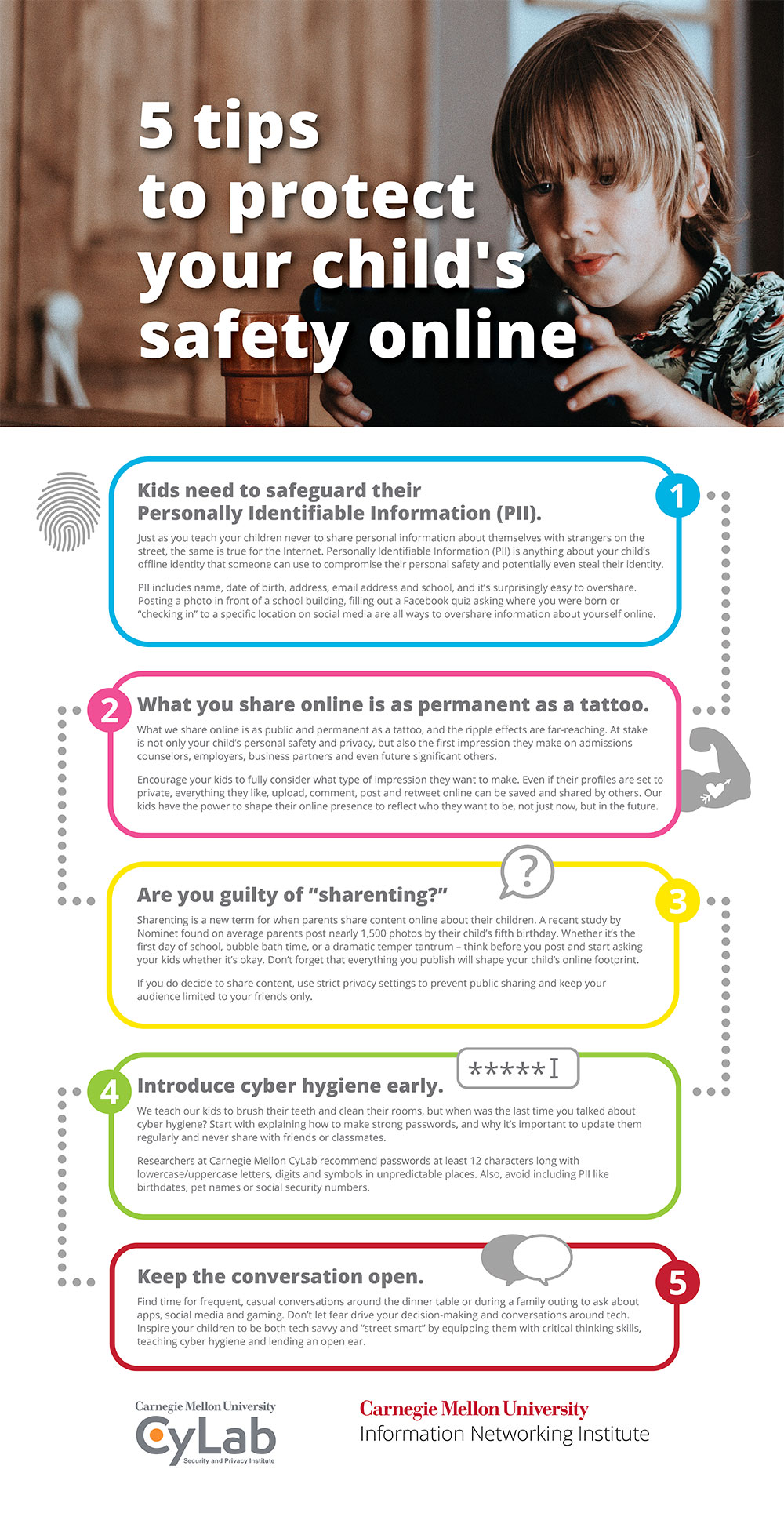INI Director to Appear on March 9 WQED Cyber-Safety Webcast
Jessica Corry
Mar 6, 2018
Dena Haritos Tsamitis, director of the Information Networking Institute (INI), will appear on a live webcast of WQED's nationally-distributed television program iQ: smartparent on March 9, 2018 at 11:30 a.m. EST. The episode—Cyber-Safety: Privacy, Protection, and the Latest Laws Affecting Children and Families—will be available at www.iqsmartparent.org/webcasts beginning at 11:30 a.m. EST on March 9.
In this one-hour live webcast, regional and national experts will explore and explain vital information about safety and privacy settings online and reveal how predators, cyber-bullies, and marketers evade them. Discover ways to protect your privacy, manage your social media “footprint,” and recognize and report online harassment.
Panel guests for this episode include:
- Alicia Kozakiewicz, Creator of The Alicia Project and a child sexual exploitation survivor
- Detective Steve Dish, FBI Violent Crimes Against Children Task Force
- Dena Haritos Tsamitis, Director of Carnegie Mellon University's Information Networking Institute
- Kelsey Meacham, Allegheny County Police Analyst
- Megan Galloway, Allegheny County Police Analyst
Before the webcast, here are Haritos Tsamitis’ top three tips for keeping your kids safe online.
 1. Kids need to safeguard their Personally Identifiable Information (PII).
1. Kids need to safeguard their Personally Identifiable Information (PII).
Just as you teach your children never to share personal information about themselves with strangers on the street, the same is true for the Internet. Personally Identifiable Information (PII) is anything about your child's offline identity that someone can use to compromise their personal safety and potentially even steal their identity.
PII includes name, date of birth, address, email address and school, and it's surprisingly easy to overshare. Posting a photo in front of a school building, filling out a Facebook quiz asking where you were born or "checking in" to a specific location on social media are all ways to overshare information about yourself online. If you think someone is misusing your child's personal information, follow these steps from the Federal Trade Commission (FTC) to repair the damage.
2. Introduce cyber hygiene early.
We teach our kids to brush their teeth and clean their rooms, but when was the last time you talked about cyber hygiene? Start with explaining how to make strong passwords, and why it's important to update them regularly and never share with friends or classmates.
My colleagues at Carnegie Mellon CyLab recommend passwords at least 12 characters long with lowercase/uppercase letters, digits and symbols in unpredictable places. Also, avoid including PII like birthdates, pet names or social security numbers.
3. Keep the dialogue open.
Find time for frequent, casual conversations around the dinner table or during a family outing to ask about apps, social media and gaming. Don't let fear drive your decision-making and conversations around tech. Inspire your children to be both tech savvy and “street smart” by equipping them with critical thinking skills, teaching cyber hygiene and lending an open ear.
